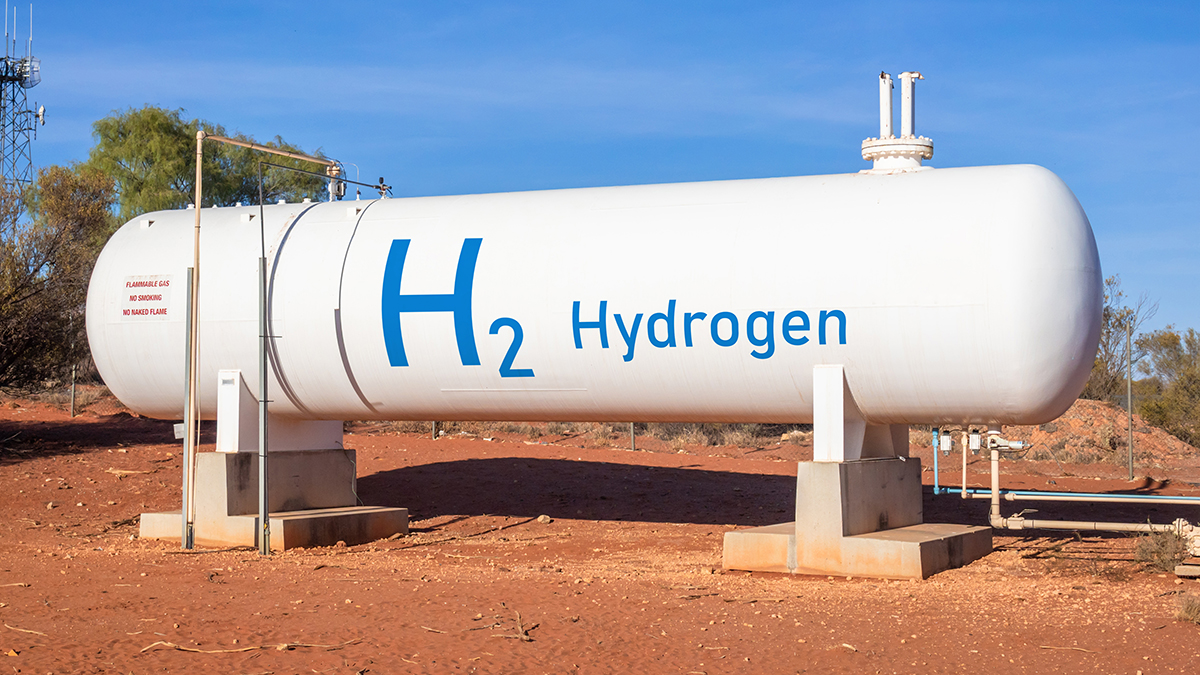The Renewable Fuel Scheme (RFS) was established under the Energy Security Safeguard and the NSW Hydrogen Strategy to encourage the production of green hydrogen in NSW.
Our aim is to support industry to grow new supply chains to improve the affordability, reliability and sustainability of green hydrogen in NSW. This will also help our industries remain competitive as international markets decarbonise and become global leaders in green hydrogen production.
Green hydrogen is hydrogen produced using renewable energy that does not produce emissions. In contrast, most hydrogen today is produced from natural gas.
Investing in the production of green hydrogen will help NSW shift to net zero emissions by 2050. It will also help us:

drive economic growth and create new jobs

improve air quality

improve our energy security
How the RFS works
As currently designed, the RFS sets a target for green hydrogen production. The annual target will gradually increase to 8 million gigajoules (GJ) by 2030.
Like the Energy Savings Scheme (ESS) and Peak Demand Reduction Scheme (PDRS), the RFS is a certificate scheme.
Hydrogen producers can create certificates based on the amount of green hydrogen they produce and sell them to liable parties. Each certificate will represent 1 GJ of green hydrogen produced.
Under the RFS, liable parties are natural gas retailers and large users who do not purchase gas through a retailer. The liable parties will need to buy and surrender certificates to meet their share of the RFS's green hydrogen production target, or pay the penalty rate for each certificate they fail to surrender. This creates a financial incentive to produce green hydrogen and supports projects to become commercially viable.
Learn more about the RFS by reading our frequently asked questions (FAQs).
Amendments to the RFS including setting a penalty rate
In December 2024, we amended the Electricity Supply (General) Regulation 2014. This included setting a penalty rate of $17.50 from 2026 to 2036 to give greater confidence and support to early-mover hydrogen producers. Liable parties (natural gas retailers and large users who do not purchase gas through a retailer) are required to pay the penalty rate for each certificate that they fail to surrender to meet their liability.
Read the amendment
We are investigating further amendments such as limiting the $17.50 penalty rate to a green hydrogen early-mover target of up to 1 million GJ. Eligibility for this target could be limited to projects that can start producing green hydrogen by 2028. Policy and legislation for an early-mover target for the penalty rate and eligibility for creating certificates are expected to be announced by mid-2025 and are subject to government and Parliamentary processes.
At the same time, we are exploring an expanded RFS design to include other renewable fuels as part of a broader renewable fuel strategy. Subject to government and parliamentary processes, we plan on finalising the potential RFS expansion in mid-2025.
Consultation on the RFS expansion
In August 2024, we consulted on the development of a new renewable fuel strategy for NSW. Part of this consultation included seeking feedback on whether the RFS design should be expanded and have additional renewable fuels and liable parties. Visit the consultation page to stay updated on the outcomes.
Please email us if you would like more information at [email protected]
Development of the Renewable Fuel Scheme Rule
To develop the RFS Rule, we consulted with industry on the first draft between December 2023 and February 2024. We used the feedback we received during the consultation to develop an updated draft RFS Rule.
Learn more about the public consultation process, the feedback we received and our current position on the proposals for the rule by reading these documents:
The RFS rule will be published in the NSW Government gazette before the scheme liability for green hydrogen starts. Learn more about the RFS by reading our frequently asked questions (FAQs).
Get involved
If you wish to receive email updates on the Renewable Fuel Scheme, including how to be part of future research and public consultation, please submit your details below.
